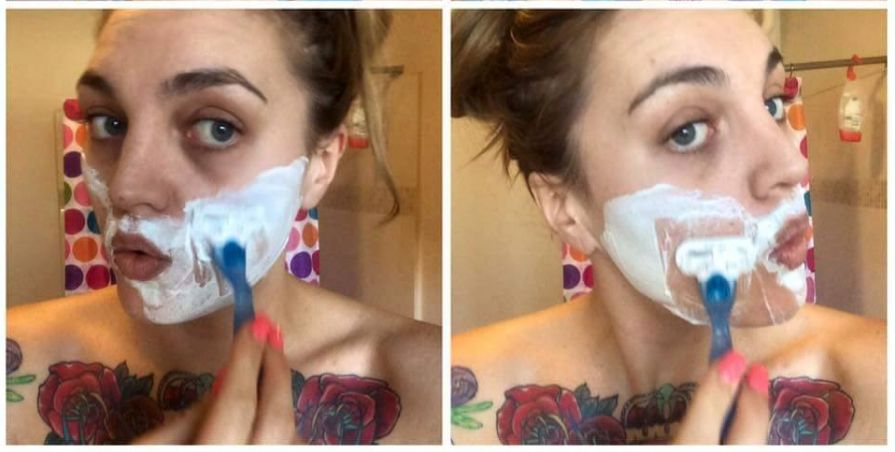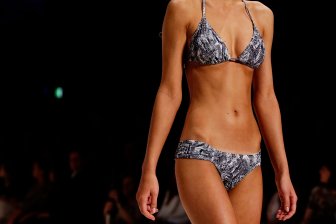An Australian blogger says she “may be hairy like a man” but still feels like a queen. She’s putting the spotlight on a hormonal disorder that affects up to 10 per cent of women: Polycystic ovarian syndrome (PCOS).

“When you see someone who is overweight, has bald patches, or a woman who has facial hair — do not judge,” Tina-Marie Beznec pleaded in a now-viral Facebook post that includes photos of her shaving her face.
READ MORE: Why a popular beauty blogger is telling women to shave their faces
The 28-year-old Perth woman admitted her PCOS symptoms always made her feel “super self conscious” and “unfeminine.” But she decided to push her insecurities aside to raise awareness about the condition, given “how much it can impact someone’s life, especially if they don’t know they have it.”
“As well as depression, anxiety, infertility, weight gain, hormonal imbalances, bloating, abdominal pains, acne, cysts, increased risk of cancer and everything else, a lot of women (including myself) have to deal with facial hair,” she explained.
What is PCOS?
The endocrine disorder affects roughly 10 million women around the world, according to the PCOS Awareness Association.
“That’s more than the number of people diagnosed with breast cancer, rheumatoid arthritis, multiple sclerosis and lupus combined,” doctor Louise Chang says on the site.
READ MORE: Can talcum powder cause ovarian cancer?
PCOS, which can be diagnosed through a pelvic exam or vaginal ultrasound, has been flagged as a risk for ovarian cancer.
WATCH: What you should know about ovarian cancer
Symptoms may appear from the time a woman starts menstruating up to her 30s. They vary between patients but can include:
- periods that are irregular, infrequent, absent or have excessive bleeding
- enlarged ovaries with ovarian cysts (though, despite the name, many PCOS-sufferers don’t have cysts on their ovaries)
- skin tags in the armpit or neck area
- darkened skin on the neck, groin, underarms or skin folds
- thinning hair
- excessive hair all over the body, including the face
- acne
- weight gain and obesity
- anxiety or depression
- infertility (however some women are still able to get pregnant)
- increased blood sugar
While the exact cause of PCOS is unknown, some researchers believe it may be caused by high levels of insulin (which controls blood sugar levels).
When too much insulin is produced, the body releases extra male hormones called androgens. Excess androgens are responsible for PCOS symptoms like irregular periods and acne, as well as thinning or excess hair.
Treatments for PCOS include diet (with a focus on heart-healthy foods) and exercise.
Beznec, who’s become a fitness fanatic, prompted many others through her post to share their own experiences with PCOS.
One woman wrote: “Unfortunately for me I have been blessed with the male pattern baldness that can come with PCOS. It’s so humiliating, especially when people point it out and tell me I’m going bald.”
Another commenter said her PCOS means she “can grow a better beard” than her husband.
Elizabeth Marrs recalled she was “mortified” when her partner first brought it up.
“He joked my stubble was [worse] than his.”
“I know it’s only natural for some of us to judge someone based on how they look,” Beznec wrote, “but remember we are all fighting our own battles.”
“And you can never understand if you aren’t willing to learn and listen.”
You can see her full post, which she asked another prominent Australian blogger to share, below:








Comments